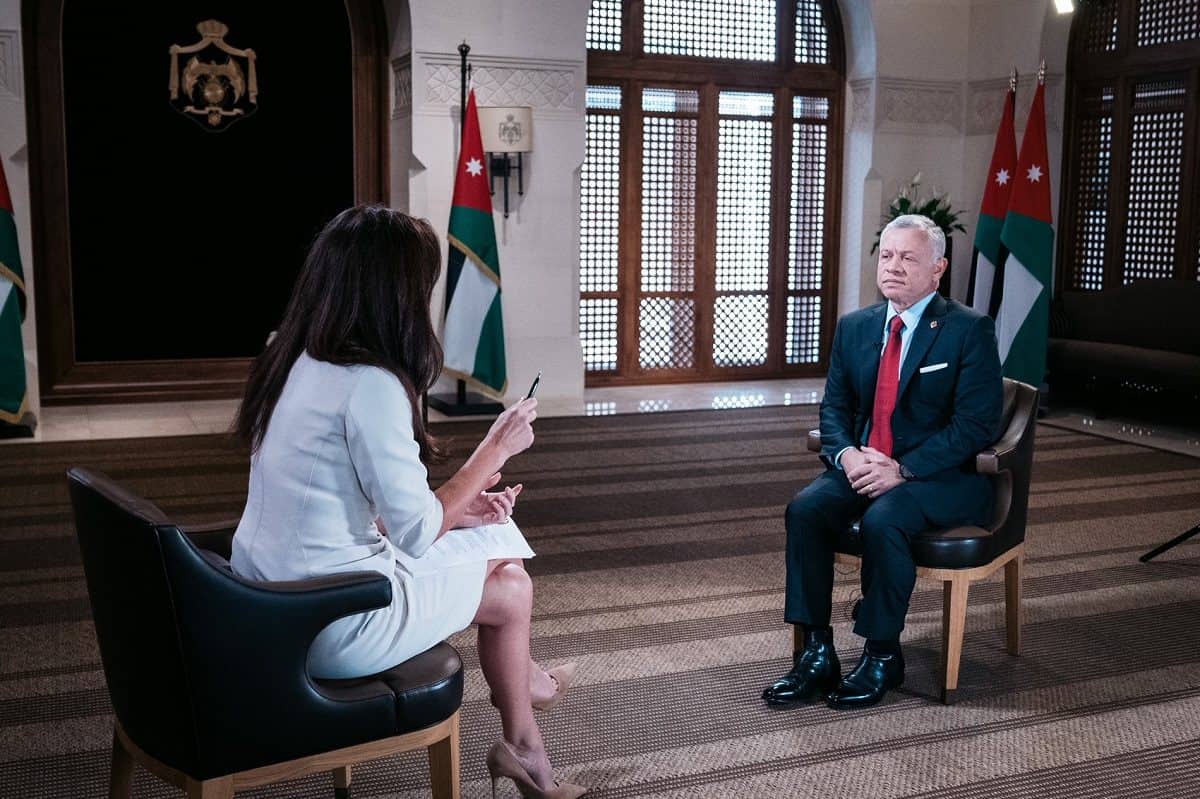King Abdullah of Jordan has said that, from a geographical aspect, his country is the front and center to many regional projects, citing the Hashemite Kingdom’s stability and resilience as key factors that serve all stakeholders in the region.
He said, “Regional projects are the buzzword of the future. It brings countries and they build this new, hopefully sustainable vision for the people of the region and ensure job creation and a better life.”
In an interview with US CNBC channel, King Abdullah spoke about Jordan’s Economic Modernization Vision for the next decade which seeks to sustain recovery from the impact of the COVID-19 pandemic.
The vision also plans for the coming years by capitalizing on opportunities in the Kingdom, especially amid the impact of the Ukrainian crisis.
Acknowledging the challenges of energy, water and refugees that Jordan is facing, the King said there are also opportunities for the Kingdom, to become a hub for alternative energy and agriculture and to work with regional partners on enhancing their food security.
The King said regional projects offer opportunities for everyone. If one country is suffering these regional projects will be affected, he said, adding that he looks forward to seeing a new approach of enhanced partnership in the region, with the possibility of including all stakeholders.
The Jordanian leader also discussed a number of regional and international issues, as well as their effects on the Kingdom and the region.
Commenting on Jordan’s economic vision, King Abdullah said there is a need to work further on enhancing the private sector’s capacity to provide job opportunities, by capitalizing on the country’s competitive investment advantages.
“Geographically, where Jordan is located, we have always been a hub, we have always been the back office for the Gulf countries. I think we can actually promote ourselves to be the front office on many issues,” the King said.
King Abdullah also highlighted stability as part of Jordan’s strength over the past decades, in addition to its ability to overcome the COVID-19 pandemic and to deal with the challenges of food security and regional instability.
“When you look at Jordan, investors have all been very comfortable about stability, and I think that has been one of our number one cards that we have been able to play,” the King said.
The King said that there should be modernization across the political, economic and administrative structure.
King Abdullah said that administrative reform is the more long-term, challenging aspect. He said that countries all over the world have to deal with it, yet Jordan’s goals cannot be achieved without administrative reform and that is also a key in the fight against corruption.
Responding to a question on the idea for “a NATO for the Middle East”, King Abdullah said the issue of alliances is complicated if their charter and mission statement are not identified.
He said there is a need to consider linkages to the rest of the world and to find a suitable formula for a very clear mission, otherwise the alliance would confuse everybody.
King Abdullah also spoke about the need to enhance public trust in political parties, and encourage the engagement of youth in partisan life. He stressed on the role of young people in advancing democracy in Jordan, and highlighted the importance of responsible freedom of expression.
On food security, the King said Jordan has stocks of wheat and barley for nearly 15 months, which enhances the country’s resilience.
He said that countries in the region should cooperate and enhance resilience to deal with the long-term requirements for food security.







